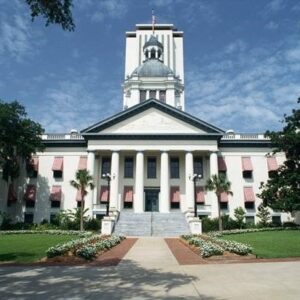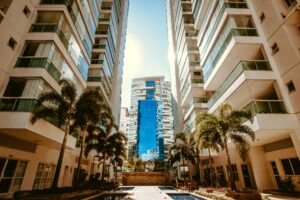Condo bills emerging
 The full Florida Legislature is back in Tallahassee this morning for a week-long special session, while the first drafts of congressional and legislative redistricting are out. Condominium bills are beginning to emerge, too, designed to help prevent another high-rise tower collapse like the one in Surfside, Florida that killed 98 residents in June.
The full Florida Legislature is back in Tallahassee this morning for a week-long special session, while the first drafts of congressional and legislative redistricting are out. Condominium bills are beginning to emerge, too, designed to help prevent another high-rise tower collapse like the one in Surfside, Florida that killed 98 residents in June.
The special session commences at noon today and is scheduled to run through noon Friday. The Governor called for the session to consider dual-track legislation designed to protect employees and families from vaccine and mask mandates, as outlined in his press release. The Governor and legislative leaders are taking aim at the federal government’s Emergency Temporary Standard for COVID-19 controls and part of the proposed legislation this week would have Florida establish its own workplace health and safety agency, to replace current oversight by the federal Occupational Safety and Health Administration (OSHA) which issued the standard. The session will specifically consider a package of four bills.
This is also the fifth committee week (of 6) in the legislature and Senators are scheduled to review drafts of both congressional and state Senate redistricting maps released last week. This reapportionment is made necessary by the latest U.S. Census, which saw Florida gain population, and with it, a 28th congressional seat. The Senate draft shows that the new U.S. House district would be located in Central Florida, just west of the Polk/Osceola County line. The Florida House is working on its own redistricting maps.
 Meanwhile, work continues on proposed legislation to make Florida’s high-rise condominiums safer in the aftermath of the Champlain Towers South collapse. HB 329 by Rep. Nicholas Duran (D-Miami-Dade) requires the Department of Business and Professional Regulation (DBPR) to establish a searchable database of condominium and homeowners’ associations’ information. This would include contact information of board members, community managers, articles of incorporation and the like, but also a copy of the annual budget and schedule of expenses and assessments. It must specify whether the association has reserve accounts for capital expenditures and deferred maintenance, and if they are fully funded. A copy of the most recent reserve study, if one has been conducted, would also be included in the database. A similar bill, SB 642, was filed in the Senate, by Senator Ana Maria Rodriguez (R-Miami-Dade). The database recommendation was included in one of two recent reports we shared in the last newsletter suggesting specific changes to how Florida’s high-rise buildings should be inspected and managed decades after they’re built.
Meanwhile, work continues on proposed legislation to make Florida’s high-rise condominiums safer in the aftermath of the Champlain Towers South collapse. HB 329 by Rep. Nicholas Duran (D-Miami-Dade) requires the Department of Business and Professional Regulation (DBPR) to establish a searchable database of condominium and homeowners’ associations’ information. This would include contact information of board members, community managers, articles of incorporation and the like, but also a copy of the annual budget and schedule of expenses and assessments. It must specify whether the association has reserve accounts for capital expenditures and deferred maintenance, and if they are fully funded. A copy of the most recent reserve study, if one has been conducted, would also be included in the database. A similar bill, SB 642, was filed in the Senate, by Senator Ana Maria Rodriguez (R-Miami-Dade). The database recommendation was included in one of two recent reports we shared in the last newsletter suggesting specific changes to how Florida’s high-rise buildings should be inspected and managed decades after they’re built.
Another bill, SB 880 by Senator Jason Pizzo (D-Miami), filed last week, would expand the jurisdiction of DBPR in investigating complaints about condo associations. It would also revise criminal penalties on acceptance of things or services of value or kickbacks, specify acts that comprise fraudulent voting activities relating to association elections, and require an association provide an itemized list and a sworn affidavit to persons requesting to inspect records.
We anticipate about two or three more bills will be filed regarding condominium association regulation and that they will be even broader. These could include establishing reserve minimums for associations to maintain for needed maintenance and new regulation on mandatory high-rise re-inspections for recertification of occupancy.
LMA Newsletter of 11-15-21

